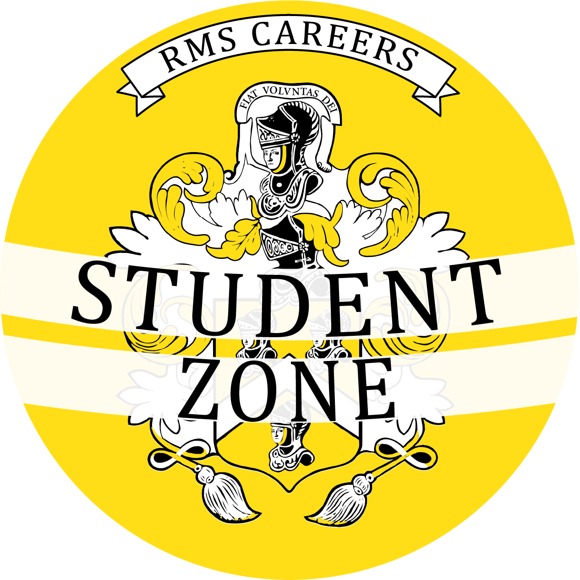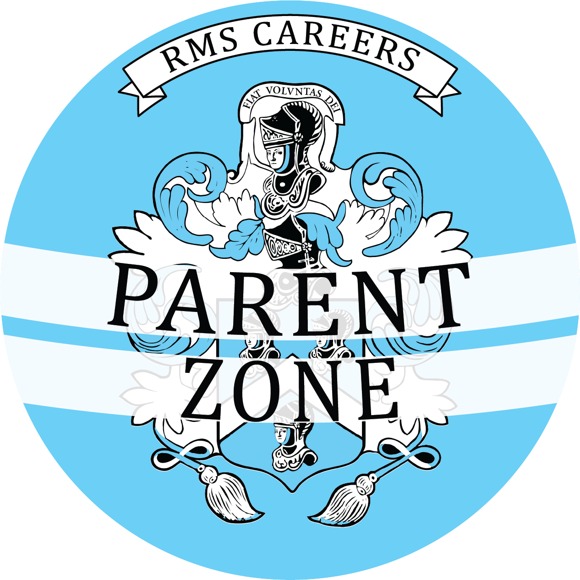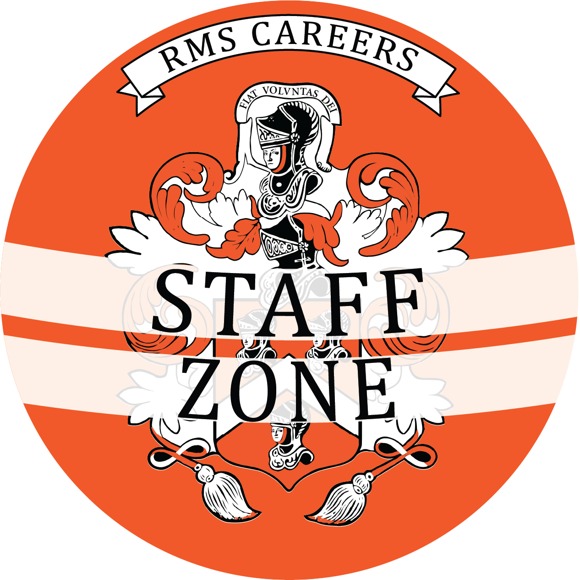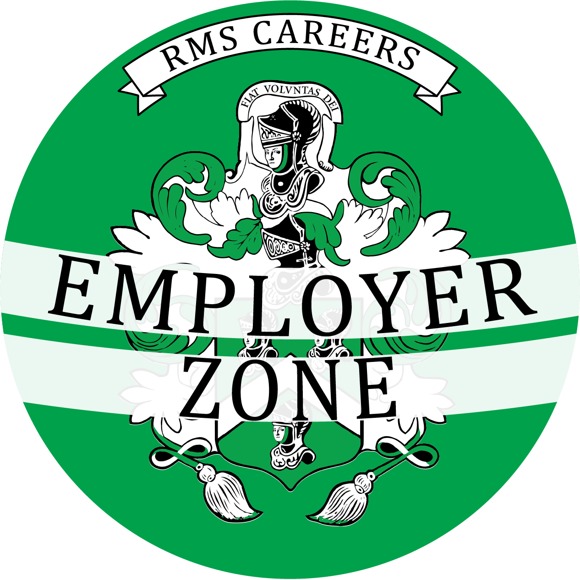Careers
Our Aim
Through our robust careers education, we strive to ensure every student understands the value of education and is empowered to make informed, ambitious choices about their next steps.
We understand that making decisions about future careers including education, training and work is a complex and challenging area. It is increasingly important that students, teachers and Parents/Carers are provided with high quality careers advice and guidance concerning future study options and labour market opportunities.
If you have any questions regarding the Careers programme, please contact:
Careers Lead, Mrs S Smyth - careers@rmays.com
Careers Bulletin
Here is a link to the Parent Bulletin, which is updated every week, where you will find key information on our Careers programme, including Trips/Events and speakers within school. It will also have key information on College Open Events, labour market information, and any experiences within the local area.
Parent Bulletin: www.rmays.org/224/bulletin
Careers Zone
 |  |  |  |
At RMS, we aim to deliver a broad careers programme which encompasses all year groups so that students have the knowledge, understanding and skills that best allow them to make the transition from school to work.
Activities in this programme include
- A Careers Fair held at RMS in September which is open to all Year 10 and 11 students
- A week of work experience for all Year 10 students
- Careers enrichment days
- Interactions and activities from enterprises and businesses
- Assemblies and presentations from external enterprises and colleges
- Trips out of school
- A one to one session with a qualified Careers Adviser during the final year
In addition to this, there are numerous local Open Days and talks from further and higher education providers which we encourage students to visit. We also have a Careers section in our library with a huge amount of information about careers choices.
We actively seek engagement with local and national employers who are passionate about supporting the next generation. Partnering with Robert May's School provides an invaluable opportunity to share your industry expertise, inspire future talent, and directly influence student career pathways. Whether through hosting work experience placements, delivering insight talks, offering mock interviews, or participating in our careers events, your support is vital in preparing our students for the world of work. If your organisation would like to collaborate or discuss how you can work with our students to broaden their horizons, please contact our Careers team today (careers@rmays.com).
Careers Advice and Guidance at RMS
Careers Advice
Young people need to stay in some form of education or training until they are 18. However, this does not mean just staying in school or college. The main options available at 16 are:
Academic / 6th Form Colleges
These colleges offer a range of different subjects and qualifications, including A levels and other level 3 qualifications, which can lead on to university, apprenticeships or work. Students can mix and match 3-4 subjects and use this to prepare for a specific career or to keep their options open. To study at level 3 (A-level equivalent) student will usually need to gain at least 5 GCSES at grade 4 or above, but many subjects require higher grades. Qualifications like A-levels and BTECs can often be mixed and are both well accepted by employers and universities. Many colleges also offer lower level course (e.g. GCSEs) to allow students with lower GCSEs to retake English and Maths if needed and to improve their qualifications.
Vocational / Career Focused College
These colleges offer work related qualifications in many areas. Students will choose only one large course, which prepares them for an industry or a specific job. It is a good option for students who like practical, work related learning and have a good idea of what they want to do in the future. Courses will include theory and academic work, as well as more hands-on learning and often work experience. Many of these courses can lead to university and they are an excellent stepping stone or backup to apprenticeships. Level 3 courses (A-level equivalent) will require at least 5 GCSES at grade 4 or above, level 2 courses typically require at least grade 3s.
Apprenticeships
Apprenticeships are a combination of work and training, allowing students to gain recognised qualifications, in some cases up to degree and masters degree level. It can be a great way to start a career for those keen to start work and those who are sure in what sector they want to start their career. On average 4 days/week are spent in the workplace and 1 day in training (e.g. at a local college or university). Apprenticeship salaries can be found on the government website but often salaries are higher than the minimum. Apprenticeships can be started at 16 or later on, are available in almost any industry and can be a great alternative to college or university. For example, besides the better known options like Plumber, Hairdresser and Car Mechanic, you can also train to be a Software Engineer, a Barrister, a Doctor a Nurse, a Solicitor, an Accountant or an Economist by completing an apprenticeship (although for some of these you would need to be 18). Vacancies can be found by contacting employers directly, speaking to training providers (like vocational colleges and universities) and looking for advertised vacancies.
http://www.apprenticeshipguide.co.uk/
Traineeship
If a young person is not quite ready for an apprenticeship, a traineeship could be a stepping stone. This is a course that combines work experience with improving general skills including maths and English, with the aim to help young people into work or an apprenticeship at the end of it. It lasts up to 6 months and is unpaid, although help with expenses for travel and meals may be available.
University
Of course not an option straight after year 11, it is still something many young people start to consider at this point. University can be a great option and the UK has over 300 universities and other higher education institutions, so there are literally thousands of courses to choose from. Entry requirements vary widely and the majority do not require specific subjects, although it is worth checking if a student already has specific plans.
For maximum flexibility it is worth considering studying at least one traditional academic subject at college (if a mix of subjects is studied) and a wider range of courses can of course keep more choices open. However, a very large number of courses do not require specific courses and in most cases good grades will be much more important than a specific subject. Many degrees happily accept vocational courses and it is worth considering that a student who prefers this way of studying will most likely prefer a university course using a similar style.
www.ucas.com The official university application service, lots of great guides and a useful degree course search to get an idea of what is available and what the requirements might be.
www.moneysavingexpert.com/students/student-loans-tuition-fees-changes/ If you are concerned about the cost of university or think you cannot afford it, read this!
www.russellgroup.ac.uk/for-students/school-and-college-in-the-uk/subject-choices-at-school-and-college/ Good guide on considering post 16 subject choices, particularly if you are planning to apply for very competitive universities in the future
Other Options
Some young people will choose to join the armed forces after completing secondary school. As this includes recognised training, often in the form of an apprenticeship, this is a perfectly good option if it suits the individual. Another option is to work or volunteer for a minimum of 20 hours per week AND be in part time education or training (minimum requirement works out as studying about 1 day per week).
Any students wishing to discuss their options can request a Careers interview with our external Careers Advisior, Theresa Petzold, through emailing the Careers lead at careers@rmays.com




